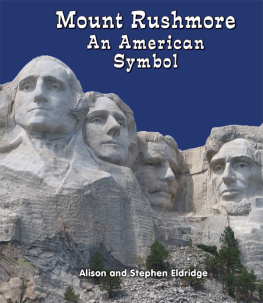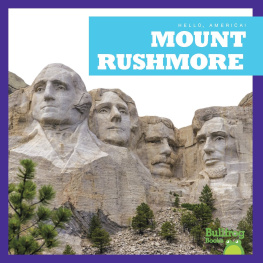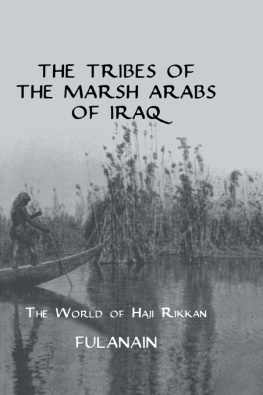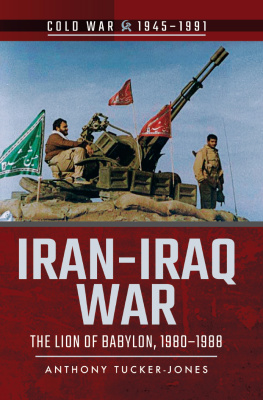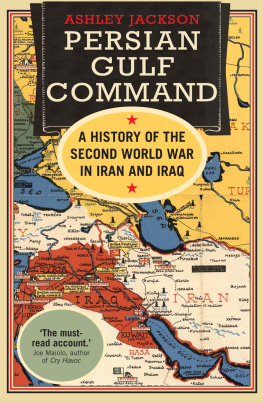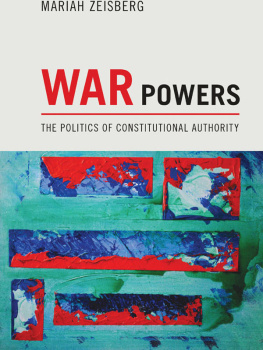For Allyn and Zillerwho will write Americas next chapter.
The dogmas of the quiet past are inadequate to the stormy present. The occasion is piled high with difficulty, and we must rise with the occasion. As our case is new, so we must think anew and act anew. We must disenthrall ourselves, and then we shall save our country.
A bove all, I think of myself as an American. If you had asked my dad, he would have said the same thing. Thats how we thought out in the Sand Hills of Nebraska, in Ainsworth where I grew up in the 1950s. It was like a hundred other small towns in the western part of the state: a couple of churches, a hardware store, a movie theater that always had a double feature, two gas stations, and an American Legion post. It was the kind of town where if you rolled down your car windows and turned the radio up loud, the whole town could hear Buddy Holly singing Peggy Sue from one end of Main Street to the other. Just down the road in Rushville, my great-grandfather and great-grandmother, Herman and Bertha Hagel, lived in an apartment above the bakery and across the street from Wefsos drugstore. Herman and Bertha shared their small apartment with two grown sons, wounded vets from World War I who got by on small disability pensions.
From the vantage point of sixty years, I suppose you could say life was tough back then, but I was a kid and kids pretty much accept life the way it comes and think thats the way things are supposed to be. Whatever was true in Ainsworth, I thought, was probably true everywhere. Maybe it had something to do with the wide-open environment and the big skies that seemed to take in all of creation. Those immense skies define the prairie states as much as the rolling sameness of the landscape. When you grow up like that, theres an openness that you feel and a sense of belonging to something larger than yourself. You dont dwell on it. You just know its there and its part of you that you carry all through your life.
Ive learned a lot that has broadened my perspective since then. But many of the things I held to be true as a boy have stayed with me. Perhaps the most fundamental is the idea of service. It was never a question with me or any of my people. Service was simply what people did. Its the way neighbors helped each other and looked out for one another. Its what the French historian Alexis de Tocqueville found so remarkable about our democracy and its people in the nineteenth century. When a barn needed to be built, he marveled, the neighbors came together and pitched in to build it. Theres a common purpose here in doing something important and good for your neighbor, and an understanding that maybe tomorrow your neighbor can do something important and good for you, too. Service to others. Service to your country.
Service meant that when your country called, you answered the call. It would never have occurred to anyone to question it. If the president said he needed you, that was enough. It was enough for me at the age of twenty-one, which is how I eventually found myself pinned down by Viet Cong rifle fire, badly burned, with my wounded brother in my arms.
I got my belief in service from my dad and mom, and people like them, the greatest generation. As I often do, I thought about those World War II vets recently as I was preparing to get on a plane and fly to western Nebraska from Omaha. Before I left, my staff brought me a photo album that they had found as they were reorganizing our office. There was a photo of my father when he was the commander of American Legion Post #79 in Ainsworth back in the early 1950s. My father was a three-time commander of the American Legion Post and my mother was a three-time president of the Legion Auxiliary.
I thumbed through the album, reliving the Legion events that stretched all through my childhood: I remembered my father preparing for Legion meetings, the Fourth of July, Veterans Day, Memorial Day, parades, and of course, the somber cemetery visits, the gravestones with their small flags flapping in the wind that always blows across the plains. Taps seems to echo longer on the prairie. I stopped at one photo of my dad in his Legion uniform. I remembered that when he was first elected commander he did not own a full Legion uniform. Those blue uniforms cost money, and like a lot of young vets after World War II, my folks had more immediate needssuch as feeding and clothing four young boys. This was a cause of great concern to him. It was like a soldier not having a proper uniform. And I remember my mother promising him, Charlie, well get that uniform. Were going to be able to do that. And they did. My mother made sure of that. My brothers and I inherited our fathers Legion uniform and it has fallen to me to preserve this family treasure. I keep it cleaned and pressed, the same way my mother did until she passed away.
I still believe, as my father did, in serving our country. But history has taught me that we must require better answers than we have been given before we ask our young men and women to sacrifice their lives for a greater cause. And when lives and families are put at risk, those questions should be probing, serious, and unrelenting. I would go so far as to say that it is unpatriotic not to ask them.
I do not believe the peoples representatives pressed these questions strongly enough in the run-up to the Iraq War. It was our responsibility to do so, to demand a clearer purpose and more defined objectives. Instead, both the House and the Senate were an amen corner for every administration claim, laying aside our responsibility to be ever-vigilant in safeguarding the peoples interests. I believe the national news media were complicit in this as well. They too were slow to ask the tough and probing questions. The results have been one of the greatest foreign policy fiascos in the history of our republic, the hemorrhaging of our national treasure and the sacrifice of thousands of young lives in the meat grinder of a Mideast conflict. Those who died gave their lives for the noble purpose of defending America. It was their leaders who failed them by committing them to a strategy that was flawed in its premises and botched in its execution. For the men and women on the ground, though, it was enough that their country asked. Their sacrifice is no less than the price paid by those who perished in the waters of Pearl Harbor or in the blasted ruins of the Alamo.
Like their fathers before them, the men and women who have slogged through the alleys of Fallujah and the caves of Kandahar set the bar for the rest of us. It is our duty to live up to their expectations and to put the needs of their brothers- and sisters-in-arms first.
It is the blunders of that war, the paralysis of a political system that did not question it, and the dangers as well as the opportunities of a rapidly changing world that have moved me to write this book. From where we stand now, how do we begin to write the next chapters of Americas story?
I believe we do so by lookingwithout preconceptions or illusionsat where we are today, considering our strengths and our weaknesses, and only then mapping out a path to the future. That is not to say that this is a book that seeks to predict the future course of events; human affairs are too complex and quick-changing to undertake that kind of political and historical soothsaying. But we can clearly discern trends, both the alarming ones that beset us and the positive ones that have made America great.


